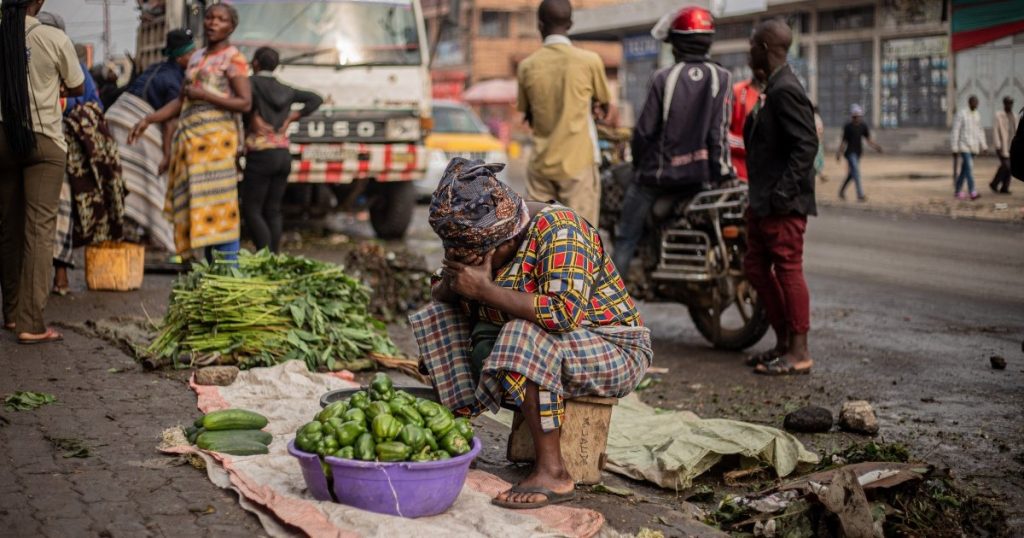The capture of Goma, the largest city in eastern Democratic Republic of Congo (DRC), by the M23 rebel group has triggered a dramatic surge in food prices, exacerbating an existing humanitarian crisis and pushing hundreds of thousands of people towards severe hunger. Data collected by ActionAid, an anti-poverty NGO, reveals alarming price hikes on essential food items such as flour, beans, and oil, with increases ranging from 18% to a staggering 160% in a single week following the city’s takeover. The disruption of supply chains, caused by the ongoing conflict and road closures, has severely limited the availability of food in Goma, leading to inflated prices and making basic nutrition unaffordable for a vast segment of the population.
The impact of these soaring food costs is devastating. Families are forced to drastically reduce their food intake, often skipping meals entirely. The average daily expenditure for many households has plummeted, severely restricting their access to essential sustenance. This deprivation poses an immediate threat of malnutrition, particularly to vulnerable groups such as children and pregnant women. Beyond the immediate nutritional crisis, the economic hardship caused by the inflated prices also undermines the ability of families to meet other basic needs, further compounding their vulnerability.
The disruption caused by the M23 takeover extends far beyond food prices. The conflict has led to widespread displacement, forcing people to flee their homes and seek refuge in overcrowded camps. These camps, already strained before the recent escalation, are now facing even greater challenges in providing adequate support to the displaced population. The fighting has hampered the operations of aid organizations, disrupting the delivery of essential services and leaving tens of thousands without access to vital assistance.
The humanitarian situation in eastern DRC was already dire before the recent escalation, with a significant portion of the population facing food insecurity. The current crisis threatens to dramatically worsen the situation, pushing millions more into critical levels of hunger and malnutrition. The United Nations agencies have expressed grave concerns about the escalating crisis, highlighting the potential for catastrophic consequences, particularly for children and pregnant women. The disruption of aid operations further compounds the challenges, hindering efforts to provide relief and support to those most in need.
The M23’s declaration of a ceasefire offers a glimmer of hope, potentially allowing for the resumption of humanitarian aid and the stabilization of the situation. However, the fragility of the ceasefire and the ongoing tensions in the region underscore the urgent need for a sustained and coordinated response to address the deepening humanitarian crisis. The blockage of aid access by the conflict highlights the critical importance of ensuring safe and unhindered passage for humanitarian organizations to reach the affected populations. Without immediate and effective action, the situation could spiral into a catastrophic humanitarian disaster.
The international community must exert pressure on all parties to the conflict to prioritize the safety and well-being of civilians and facilitate the delivery of essential aid. Sustained funding and resources are crucial to support humanitarian organizations in their efforts to provide life-saving assistance to those in desperate need. Addressing the root causes of the conflict and promoting long-term stability in the region are essential to prevent further humanitarian crises and build a more secure and prosperous future for the people of eastern DRC. The current situation demands urgent and decisive action to avert a humanitarian catastrophe and provide a semblance of normalcy and hope to those affected by the conflict.

